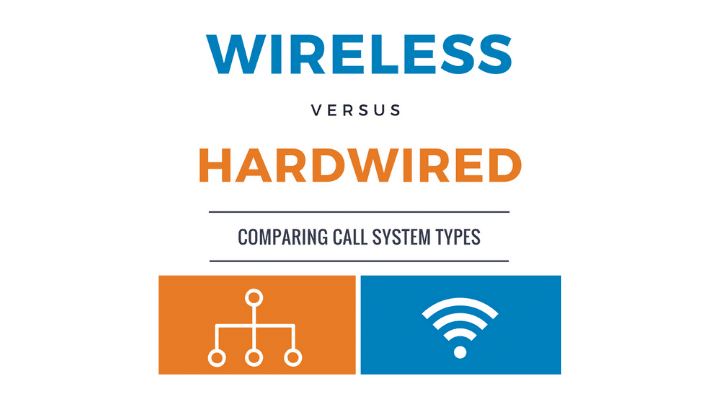According to a recent National Center for Health Statistics report, only 45.9% of American households still used landlines for their telephones. This probably isn’t that surprising since increasingly wireless is in and wired is out.
The general thought is that wireless is better because it gives you more flexibility, mobility and saves the cost of physical wiring. While all of that is true, wireless has its own issues such as reliability, security, and batteries that need to be replaced or charged.
In the senior living industry, “wireless” has also become synonymous in many people’s minds as more “current” or “innovative”. I’ve had many conversations with clients asking for a “wireless system” and when I ask why they want wireless they often answer, “I heard it was better”. But better how?
-
Flexibility
The process of developing a new community comes with a lot of decisions to make. Of course we all want to put the best planning efforts in and not miss anything. However, there are times when we miss a pull station in a spa, or the state decides they want you to add an extra station in the shower of every resident bathroom, even though not explicitly required by code (which I’ve seen more than a few times). Once you’ve put in the infrastructure for the wireless system, you can add devices as required. If your resident needs change you can also add features that you may not want to put in at the start. For existing buildings, it may also be physically impossible to run wires in some locations which makes wireless the only alternative.
-
Mobility
Probably the most commonly associated benefit for wireless devices is their mobility. Providing residents with a wireless pendant that they can use anywhere in the building, or even on the campus, is a huge feature for safety and something family members are coming to expect as part of the package.
-
Reliability
Going back to the telephone analogy, how many times has your landline phone dropped a call or missed a call because you were out of range? Probably never since it is plugged into a secure outlet and the technology is pretty basic. Alternately, how many times has your cell phone done something inexplicable because of “reception issues”. Wireless technology is much more complicated and is relying on radio frequencies that can be susceptible to interference no matter how well designed they are. While wireless system providers make every effort to ensure that your building is 100% covered, even things like changes in weather can affect RF signals. Be sure that any wireless system you choose has supervisory capabilities to alert when devices have low batteries or are not working.
-
Cost
Most people would assume that running wire to every device in the community is going to be expensive. Many wireless systems require little or no cable for their infrastructure. The part that may be missed is that even “wireless” systems have some cabling requirements. In some cases they require a dedicated electrical outlet at each receiver location. That may not be included as part of your wireless system quote, but it is going to add to your electrical contractor’s bill. Cabling aside, wireless devices are more technologically complicated than hardwired devices. This means the individual devices are more expensive. We also need to factor in maintenance costs…
-
Maintenance
So you’ve installed 200 wireless devices in your community. That means 200 batteries to replace at some point. Every wireless system is slightly different, but most batteries are going to need replacing at least every few years. That is going to require someone’s time, access to resident rooms, and the cost of the batteries. Not to mention the implications of disposing of the dead batteries. Hardwired devices require little or no maintenance and are much cheaper to replace.
-
Regulations
Many states still require a hardwired system for skilled nursing settings. A few also prefer hardwired for assisted living. If your state requires corridor lights outside resident rooms then that part at least will have to be hardwired. There are a few wireless system providers that claim to be approved for skilled nursing but be careful about getting approval before you proceed.
So is wireless really better?
Wireless is definitely the go to for most retrofit situations due to the ease of installation. Offering mobile pendants to residents is also an important factor for safety as well as marketing to families. Hardwired systems may be required by regulations and are also highly reliable and cheaper to maintain.
Best of both worlds?
There is another alternative…a hybrid system. Systems such as the Vigil Vitality Care System offer the best of both hardwired and wireless systems. For new construction, Vigil typically recommends installing hardwired stations in bathrooms, bedrooms and common areas where the station is fixed to the wall and doesn’t need to move around. The Vitality Care System network uses the same infrastructure for both wired and wireless devices which means that you can easily add wireless pendants, wireless wrist bands and wireless bed and chair monitoring. If you’re building a new community a hybrid system lets you have the best of both worlds.

